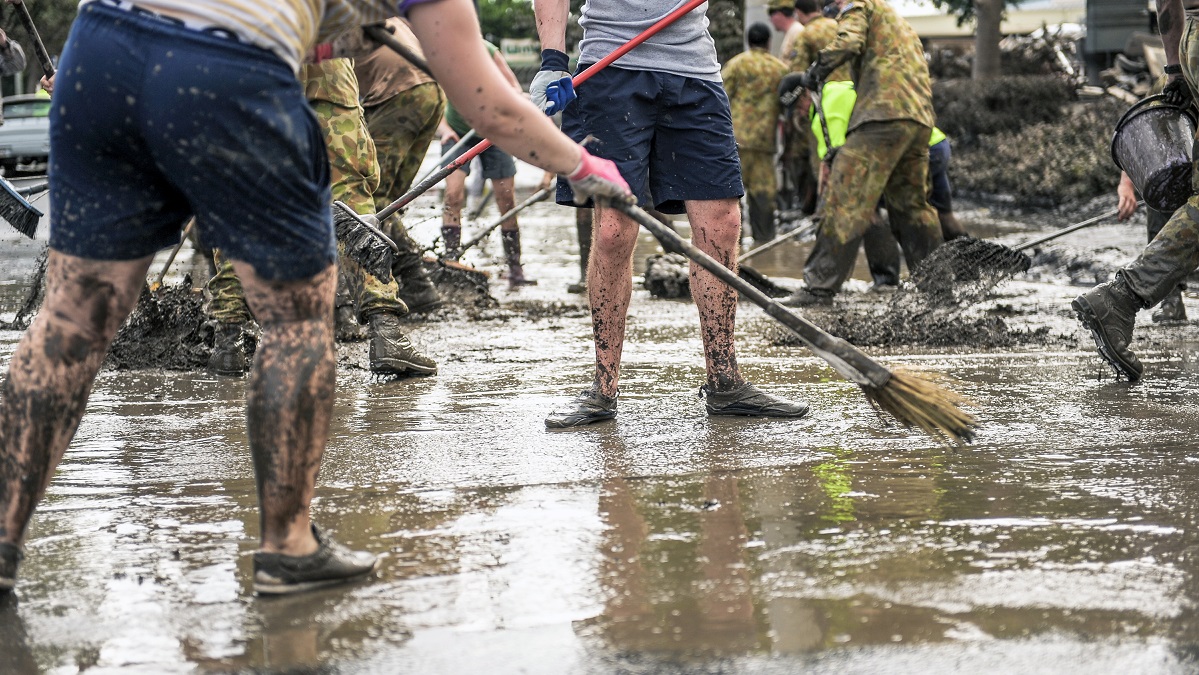Fires, floods, storms and cyclones are part of Australian life. How you deal with their aftermath hugely affects your immediate wellbeing as well as your longer-term recovery.
First and foremost, should disaster strike, ensure that everyone is out of harm’s way.
Once safe, the following checklist will help you begin recovering from Mother Nature’s wrath while minimising any financial losses.
1. Compile identification
Gather all the identity documents you have. Being able to prove who you are and where you live will streamline access to disaster assistance and the rebuilding of your life and livelihood.
Ideally, include:
- photo ID – drivers licences, passports
- bank details – for accessing cash and for financial assistance deposits
- medical information and medications, including dosage and the prescribing doctor
- photos of important assets; any proof of purchase
- leases.
2. Check your list
Sadly, the speed with which disasters unfold can mean most or all your identification documents are lost – along with everything else you own.
This is where a back-up list of key contacts and logins is useful. Save it in a special place – online, with relatives etc.
Your list should include names, contacts and reference/customer numbers for your:
- General insurance broker, who will have your relevant insurance details. Their help will be invaluable to lodge and track claims.
- Utilities. Contact them about restoring connections, cancelling services to a destroyed property, and accessing disaster relief. They can also help verify your identity and address if all your documentation has been lost.
- Advisers, who have your relevant records on file. Your financial adviser will have your superannuation details, investment records, your personal insurance details (life, trauma, income protection cover), possibly even your Centrelink details. Your accountant will have tax, company and trust records, bank account numbers and your Tax File Number (TFN).
- Family, friends and neighbours. Most of us don’t remember phone numbers anymore – it’s all saved on our mobile. If your phone is lost, so too is your means of contacting them in an emergency.
3. Seek help
Don’t let pride stand in the way of valuable support post-disaster. The following help is available.
- Government disaster assistance is available in various forms, including emergency cash grants.
- Charities offer various support – food, clothing, shelter, personal supplies – for evacuees and those whose homes have been lost.
- The State Emergency Service (SES) offers practical support (e.g. flood rescues, removing fallen trees).
- Talk to your bank if you have a mortgage, landlord/agent if you are renting, local council if you are a ratepayer – to access disaster relief, including paused payments.
- If your health has suffered, including mental health, you may have a claim on your personal insurances
4. Lodge claims ASAP
Insurance claims can take time to process – especially when a large-scale disaster means lots of people are submitting claims. So, it (literally) pays to lodge your claims as soon as possible.
Photos of the damage and documentation from official disaster assessment teams will help.
Depending on the impacts you have suffered and your policies, claims may cover:
- property and contents loss/damage
- vehicle loss/damage
- health cover for any injuries
- lost income
- business interruption.
Some policies include emergency accommodation or transport, providing you with a temporary roof over your head and a means of getting around.
5. Avoid debt blowouts
Relying on your credit card to pay for essentials, repairs and income gaps while awaiting insurance payouts can create a nasty debt hangover that adds to your woes.
Where possible, reshuffle your affairs to ensure you have money available.
- Access your emergency fund or savings account (which you can top up again once you’re back on your feet).
- Sell surviving assets.
- Use cheaper temporary accommodation (park caravans, tiny homes, staying with friends) instead of paying for a hotel or renting.
- Spend points (frequent flyer, loyalty) and gift cards to conserve cash.
- Cancel/pause subscriptions and direct debits – many will not be needed if your home is destroyed or unliveable.
6. Protect what’s most important
Good preparation always makes life easier in an emergency. Have an evacuation plan prepared. Keep insurances and other protections updated. Know what you need to pack in a hurry.
Physical and mental trauma are possible – get them treated to minimise future complications.
Call triple 0 in an emergency, or the SES for assistance.
Above all, remember nothing is worth losing your life for. If disaster strikes, get yourself and your family to safety pronto. Everything else can be replaced!
Do you live in an area that has experienced a natural disaster? What can you add to Helen’s checklist? Share your thoughts in the comments section below.
Also read: Are you missing out on a retirement bonus?
Helen Baker is a licensed Australian financial adviser and author of the book, On Your Own Two Feet: The Essential Guide to Financial Independence for all Women (Ventura Press, $32.99). Helen is among the 1 per cent of financial planners who hold a master’s degree in the field. Proceeds from book sales are donated to charities supporting disadvantaged women and children. Find out more at www.onyourowntwofeet.com.au

